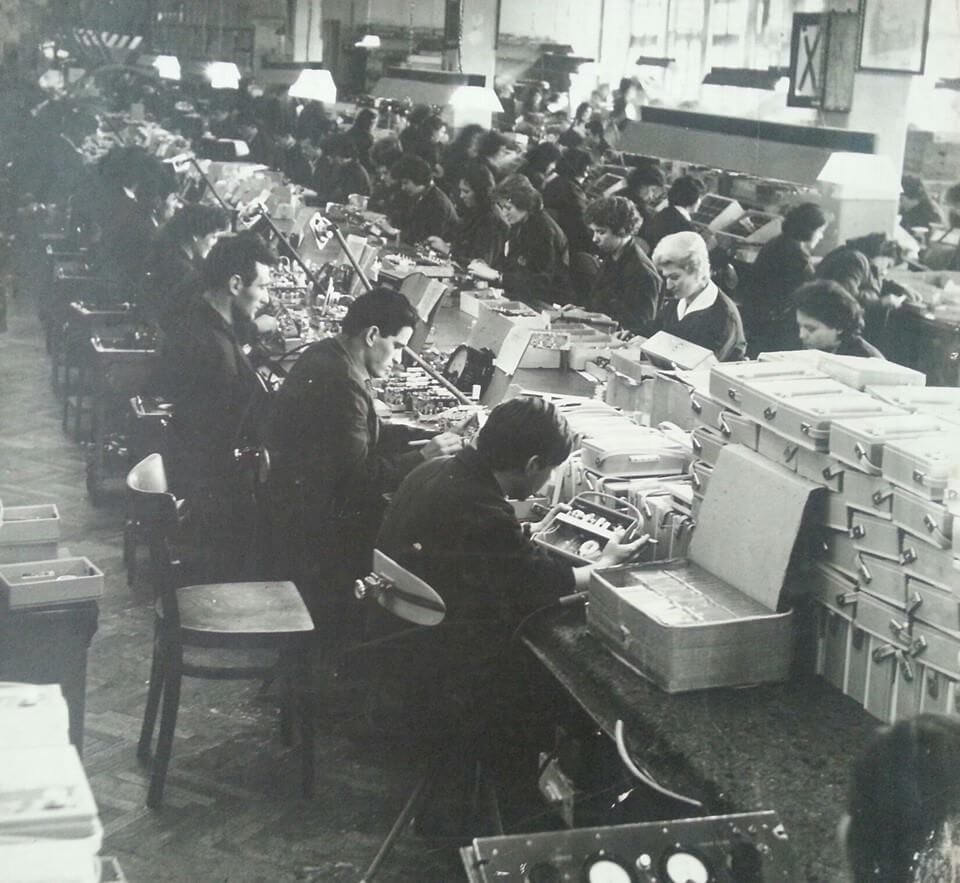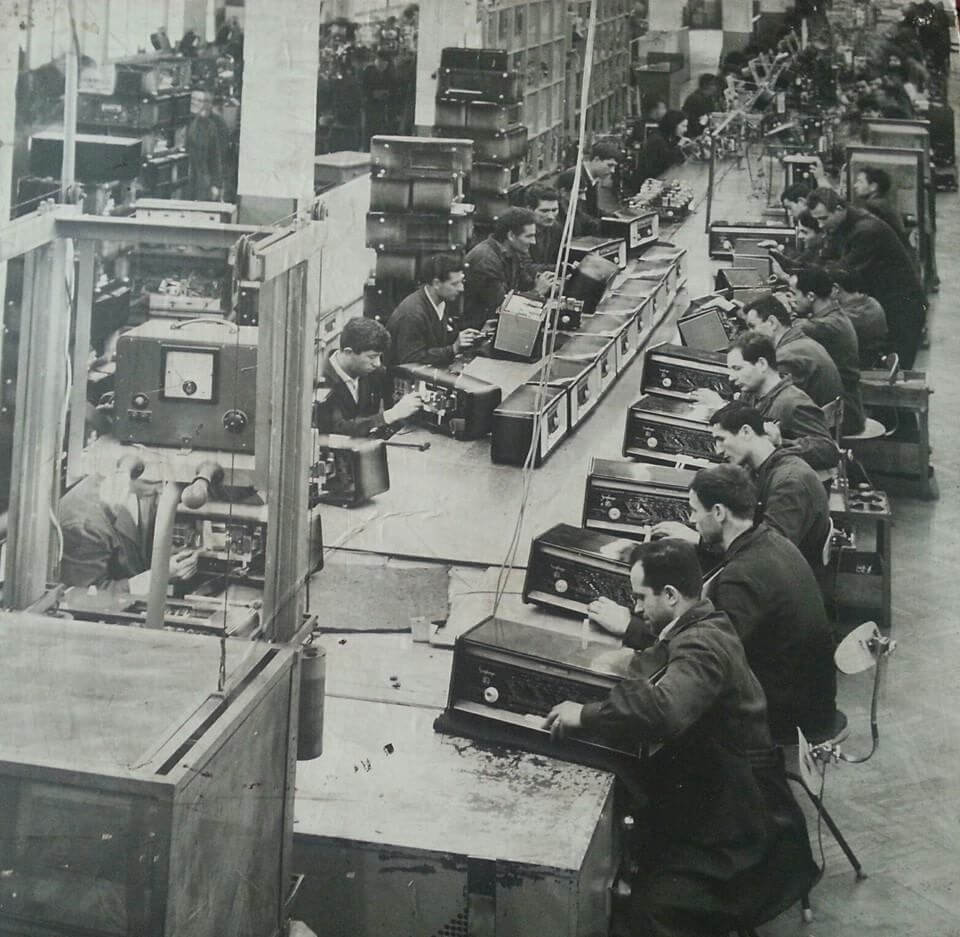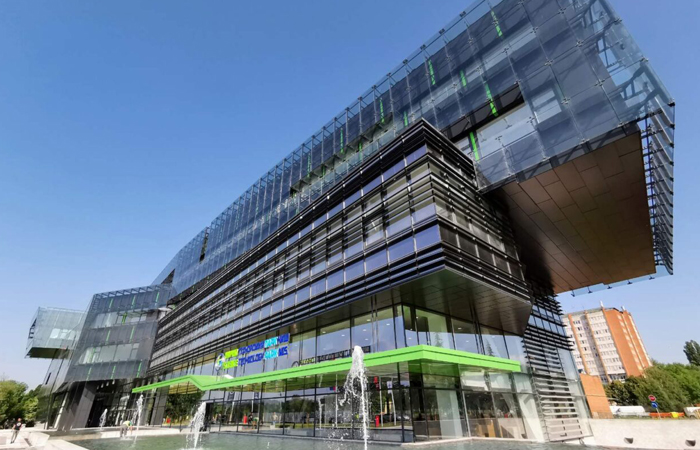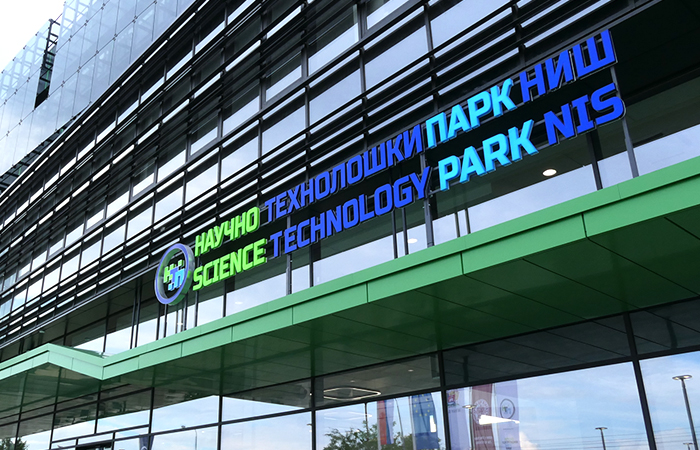Industrial legacy
Niš as a railway and industrial center
With the introduction of the railway line through Niš, the city became a significant railway junction, creating the conditions for the development of industry, healthcare, urbanization, education, and culture. During this period, several key institutions were established, including the Military and Civil Hospital, the locomotive depot—precursor to the machine industry, the Pasteur Institute, the First Gymnasium and Library, the Hydroelectric Power Plant and public lighting, as well as the first airport in Serbia.
Urbanization was supported by a city planning project developed by the Austrian Franz Winter. Thanks to the influx of foreign experts, Niš became a center of modern initiatives in Yugoslavia.
Development of the electronics industry
During the second half of the 20th century, Niš established itself as a leading industrial center in Yugoslavia, with a focus on the electronics industry. The first steps were taken in 1948, when a group of German experts initiated the production of radio and X-ray tubes. Local professionals were trained in newly established industrial schools, and with the opening of the Faculty of Engineering in 1961, followed by the Faculty of Electronics and the Faculty of Mechanical Engineering, a foundation for highly qualified personnel was laid.


Niš Electronics Industry (EI):
- Production: Radio and TV sets, X-ray equipment, integrated circuits.
- Volume: Over 12 million radio sets, 6 million televisions, and 50 million electronic tubes.
- Collaboration: Licensing agreements and partnerships with companies such as Philips, Siemens, and RCA.
At its peak, EI employed around 24,000 people, including 2,000 highly educated professionals, and stood as a symbol of technological advancement.
The education of young people and additional professional upgrade of the experienced workers was
provided by the opening of the Technical Faculty in Niš in 1961, followed by the Faculty of Electronics and Mechanical Engineering within the newly established University of Niš. This university has trained
highly qualified staff of all profiles necessary for business in Niš and the region. The opening of the
Faculty of Electronic Engineering in Niš was initiated by the Electronic Industry of Niš, by hiring the most
famous professors in Yugoslavia and providing all conditions for work, necessary space and equipment.
Today it is a University with about 30,000 students.


21 century – the city of Niš proves the acquired knowledge is tradition and richness
The turbulent 1990s brought a halt to development. However, the tradition and accumulated knowledge in the field of electronics laid the foundation for the modern IT sector. Today, Niš is home to:
- Over 300 small and medium-sized enterprises in the fields of IT and advanced technologies,
- A Science and Technology Park that supports startups and spin-off companies,
- The Faculty of Electronics and the Faculty of Mechanical Engineering, which continue to educate top professionals.


Collaboration with international partners and participation in global research projects have solidified Niš's position as a center of innovation. A significant step in showcasing its achievements was made with the publication of the monograph "Niš – City of Advanced Technologies" in 2018, which authentically presents the development of electronics and advanced technologies in the context of global trends.
Today, Niš, with its industrial heritage, modern technological capacities, and educational institutions, reaffirms its status as a regional leader in IT and advanced technologies, building a brighter future for new generations.
Interested in cooperation?
The City Administration for Local Economic Development and Investments




